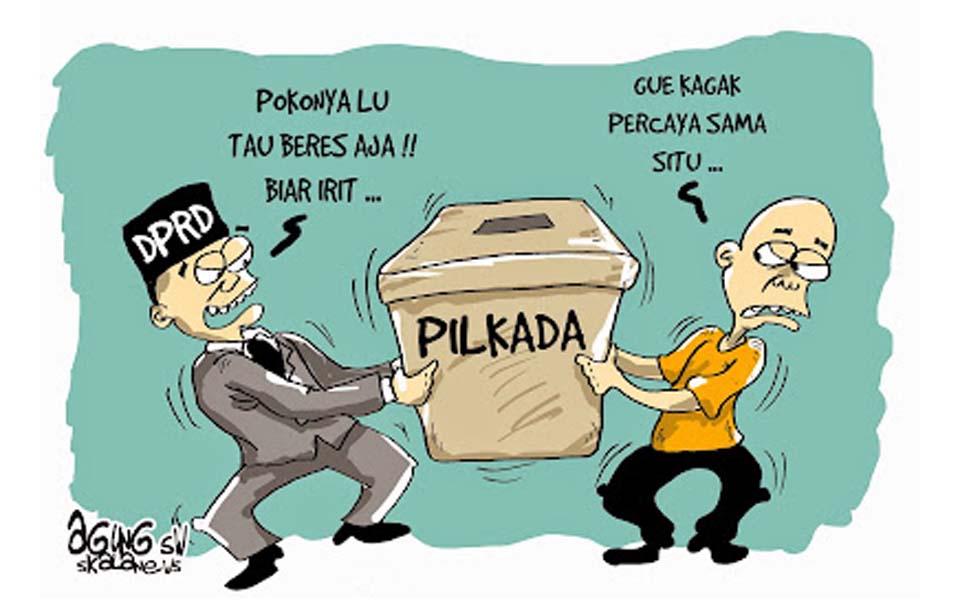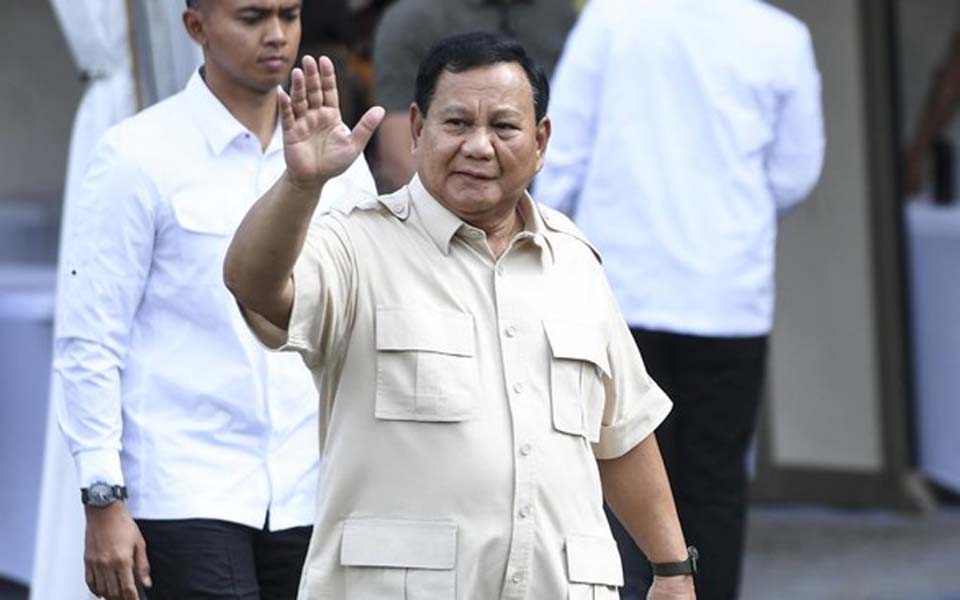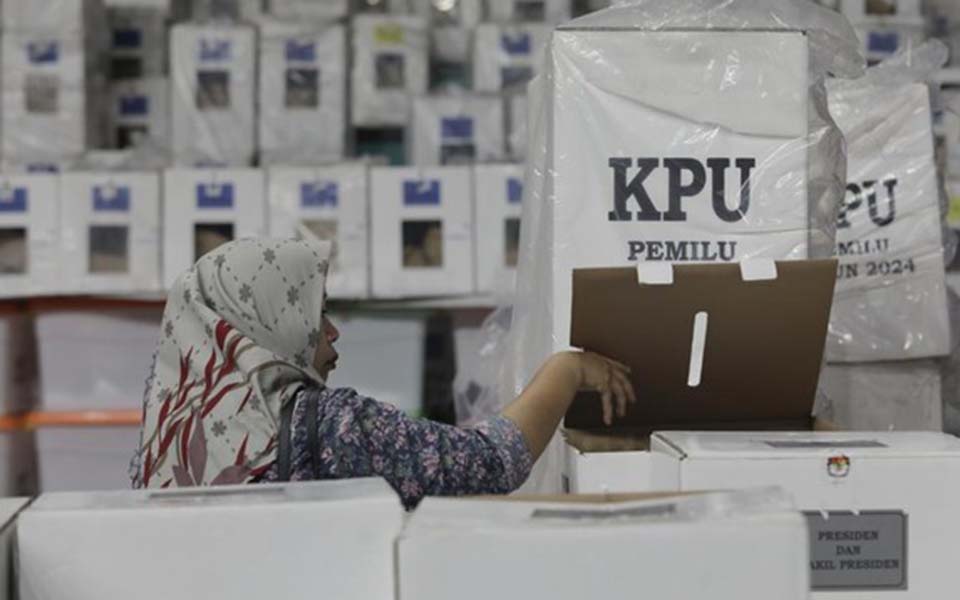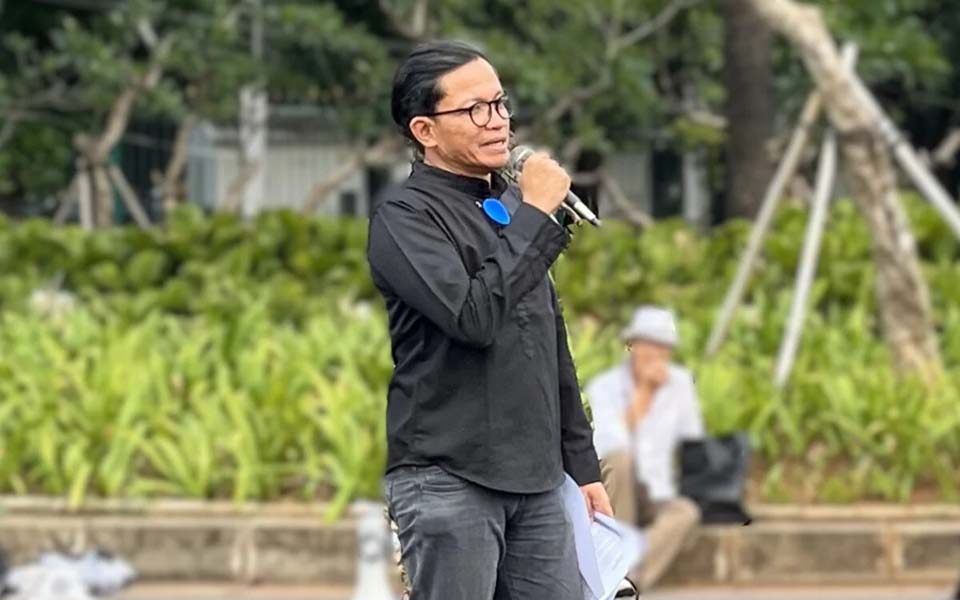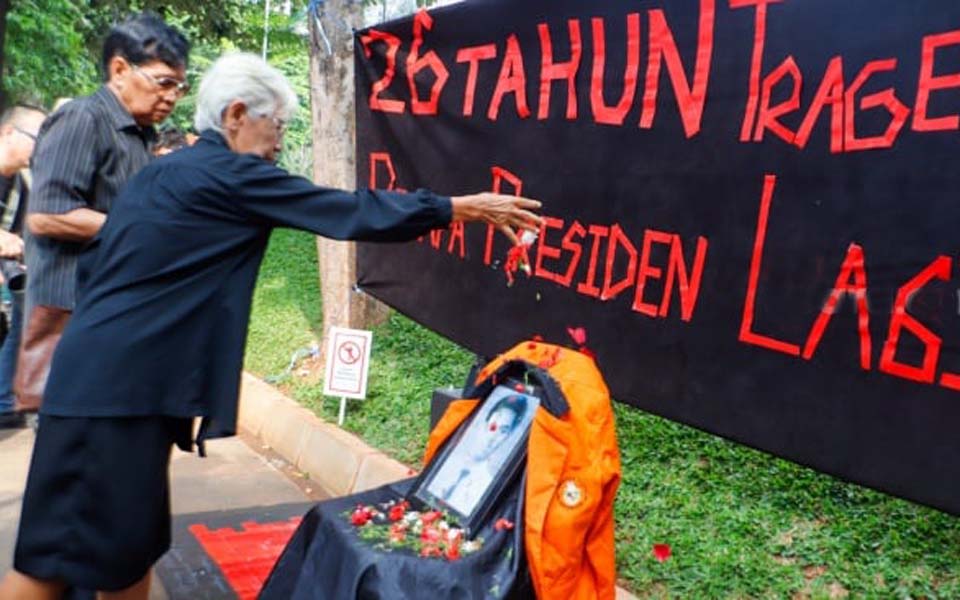M Hernowo – Case of human rights violations that took place around the time of the fall of the New Order regime have still not been fully resolved. Moreover President Suharto’s decision on May 21, 1998 to release his grip on the reigns power, which he held for 32 years, has been taken advantage of by some groups.
Among those who benefited from Suharto’s resignation 13 years ago were former activists who fought against the New Order regime. The political space that opened up during the reformasi era provided opportunities to these activists to move more freely, such as becoming members of the House of Representatives (DPR), political party leaders and member of the government.
Moreover, these activists became part of a new Indonesian generation in the political, social and economic arena. They include, among others, Budiman Sudjatmiko, the former general chairperson of the People’s Democratic Party (PRD) who is now a lawmaker and member of the Indonesian Democratic Party of Struggle (PDI-P) faction in parliament. One of Sudjatmiko’s colleagues in the PRD, Andi Arief, is now a special staff member to President Susilo Bambang Yudhoyono.
Two victims of the abduction of activists in 1997-98, Pius Lustrilanang and Desmond J. Mahesa, have also become DPR members from the Greater Indonesia Movement Party (Gerindra). Among others, Gerindra was established by Suharto’s former son-in-law Prabowo Subianto, who was dismissed from the army’s elite Special Forces (Kopassus) after it was declared that he was involved in the abduction of these activists. Anas Urbaningrum, the general chairperson of the Islamic Students Association (HMI) in 1997-1999 has even become the general chairperson of Yudhoyono’s ruling Democrat Party.
Mugiyanto, also a former member of the PRD and one of the victims of the 1997-98 abductions, who to this day is still fighting to discover the whereabouts of 13 of his colleagues who are still missing, said there are two reasons why his colleagues became involved in practical politics. First, it was triggered by exhaustion from building the movement. This resulted in some former activists becoming involved in politics without looking at the background of their political partners. Second, because there was a desire to continue the ideals of reformasi.
If asked about their reasons for becoming involved in practical politics, former 1998 activists generally answer that it is to carry on the agenda of reformasi, such as creating an administration that is free of corruption, collusion and nepotism (KKN). “Practical politics is one of the ways to struggle, to fight for ideals. The struggle must also be carried out from within the system, not just from outside the system”, said Sudjatmiko.
Within the DPR, Sudjatmiko has been fighting for things that were of concern to him when he was a student, such as agrarian reform. He is also actively fighting for the village law, which he is convinced is one of the ways to empower communities.
Other former 1997-98 activists who are now in the DPR are known for having other concerns. Lustrilanang, who is now the Deputy Chairperson of DPR’s Household Affairs Committee (BURT) has become known through the house’s plan to construct a new parliamentary building, which has created such heated public controversy of late. Former 1998 activist Fahri Hamzah, who is now the Deputy Chairman of the DPR’s Commission III on law and security affairs from the Prosperity and Justice Party (PKS), is known for his courageous stand on law enforcement in Indonesia [he was one of the strongest proponents of the divisive 2008 anti-pornography law – JB].
Sudjatmiko concedes that there have been many “political roads” taken by his former 1997-98 colleagues in struggle. However the diversity of paths is quite normal and has not given rise to animosities.
Public profile
M. Qodari, a political observer from Indo Barometer, said that the political performance of some former 1997-98 activists have indeed become known by the public. This is related to their ability to manage issues and speak, which was obtained from their experience as activists.
“In general however, their presence has yet to provide new political colour in Indonesia. They still tend to follow and have yet to influence their political party’s policies. As a consequence, as a group their presence is still relatively similar to politicians who emerged from other backgrounds, such as business people, professionals, even celebrities”, he said.
This has occurred because in general these former activists have yet to hold central positions in their political parties. “Anas is indeed the Democrat Party’s general chairperson. However there is still a debate about weather he holds real power in the party”, said Qodari.
This situation is even more difficult because these former activists must compete with other politicians who often have more experience and capital. “Reformasi has allowed the old [political] figures to continue to exist. This is different from the events of 1966 [when Suharto and the military seized power]. Then there was a complete break with the old regime”, said Qodari.
Haris Azhar, the coordinator of the Commission for Missing Persons and Victims of Violence (Kontras), even likens practical political practices to an octopus that is it is slippery and large. As a consequence, many of the former activists have ended up being enslaved or have lost their way thought their involvement in politics.
In addition to creating exhaustion, this situation has also started to make some former activists think practically or pragmatically after they become involved in politics. Moreover, the world of politics is not cheap in economic terms, although it promises many things.
It is unwise however for these challenges to become grounds for former activists to “surrender” to politics.
Source: Generasi Baru Indonesia yang Belum Mewarnai – Kompas. 14 Mei 2011
[Translated by James Balowski.]











